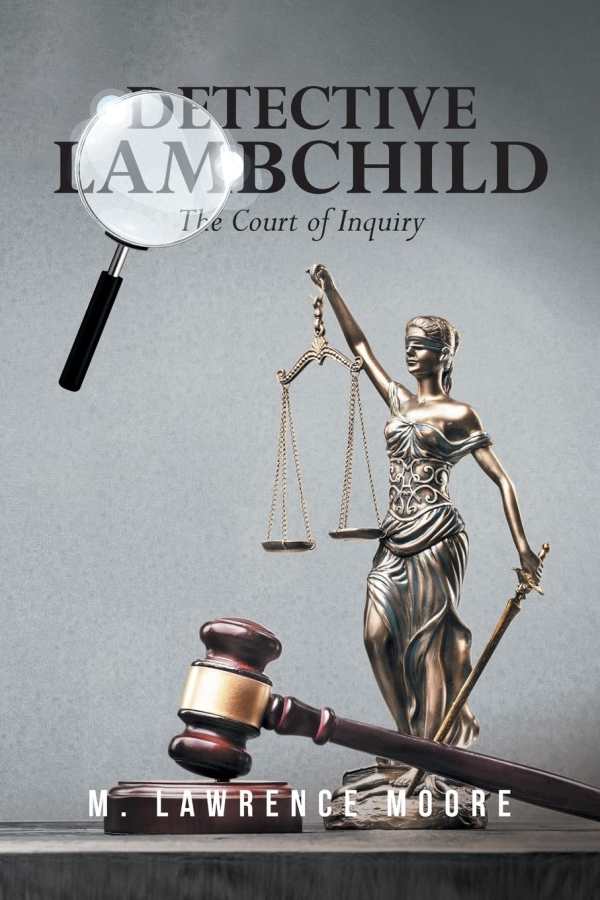Detective Lambchild
The Court of Inquiry
In the mystery novella Detective Lambchild, people both good and evil get their just deserts.
Christian values guide the unfortunate and downtrodden bystanders who are caught up in a crime in M. Lawrence Moore’s mystery novella, Detective Lambchild.
David Lambchild is a detective in Texas investigating the death of a teacher at a school for disabled students. A note left near the teacher’s body—composed in the handwriting of Mr. Rebele, the deceitful assistant principal—declares that she was murdered. In the process of uncovering a deeper plot, Lambchild recognizes the hidden qualities of the students and a power imbalance in the community.
Various people narrate, including students, school staff, and members of the police force. Lambchild and a student, Christopher, dominate this mix. The virtues and misfortunes of each are unveiled during flashbacks that center their long-term goals and deontological moral compasses. For example, Christopher is accused of being a gang leader by Mr. Rebele, though he earns money by picking pecans for his neighbors to buy necessities for his mother and registers himself for school, displaying personal independence and ambition in the face of his extenuating circumstances. He is honest and there’s humility in his work and attitude, garnering the favorable attention of authorities at the school and in the judicial system. Despite the temptation to fall into degeneracy, Christopher’s perseverance and hard work lead him, and those around him, in positive directions.
Themes surrounding people’s livelihoods, money, and honest efforts in society stand out in the tale. The judicial process and delegation of power in the narrative are portrayed as fair and just. Lambchild’s humble beginnings as an adopted orphan are emphasized, and people’s inherent goodness often pays off. But there are exaggerated scenes that work in service of these goals, as when Mr. Rebele manipulates a SWAT team to confront Christopher and his mother outside of the school; that decision almost results in tragedy. Christopher’s unbending submission is, disconcertingly, all that averts the crisis.
People’s conversations are stilted throughout the book. They speak in run-on sentences that impede the story’s flow. Most people sound alike, and their language is too unadorned. This extends to the book’s descriptions of people, whose personal traits and backstories are presented in a rote and unengaging manner. Further, though the novel is short, it contains extraneous scenes, themes, and characters, as with Lambchild’s marriage proposal, the presence of a supportive church community, and the introduction of Detective Brothers; none are sufficiently developed, and none influence the plot in a substantial way.
Concerned with people getting their just deserts, Detective Lambchild is a mystery novella in which persecuted people face undue legal entanglements and must retain their moral centers to prevail.
Reviewed by
Aleena Ortiz
Disclosure: This article is not an endorsement, but a review. The publisher of this book provided free copies of the book and paid a small fee to have their book reviewed by a professional reviewer. Foreword Reviews and Clarion Reviews make no guarantee that the publisher will receive a positive review. Foreword Magazine, Inc. is disclosing this in accordance with the Federal Trade Commission’s 16 CFR, Part 255.

